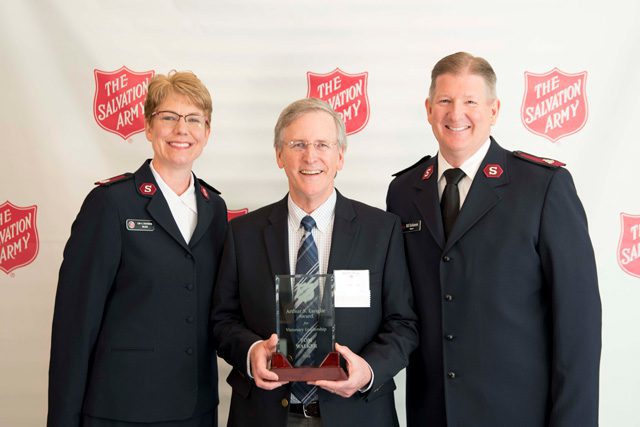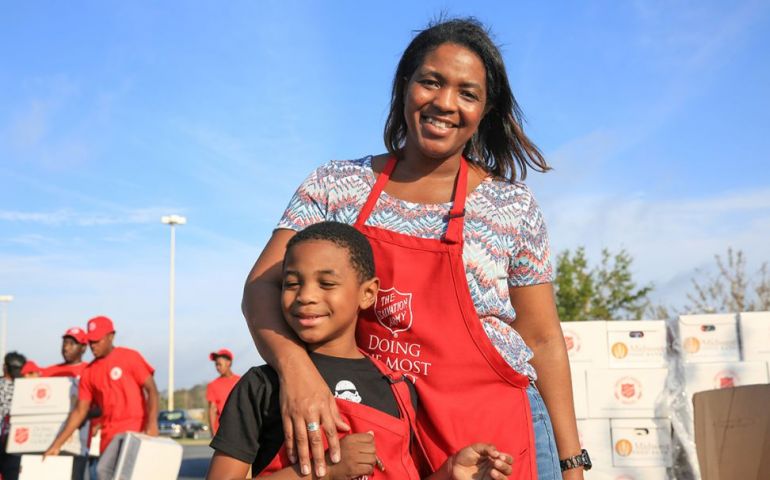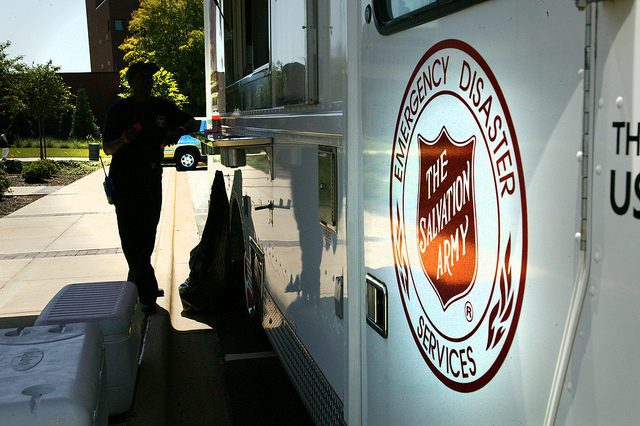Salvation Army opens gates to vulnerable populations in North East Salem.
By Hillary Jackson –
When Salem (Oregon) city officials announced its water was not safe for vulnerable populations to drink, people panicked.
“All the stores emptied with bottles of water immediately. My son even stopped by three stores on the way home trying to pick up some water and not one of them had water,” said Captain Dan Williams, The Salvation Army Ray and Joan Kroc Community Center in Salem Administrator and Marion and Polk County Coordinator.
The reason? Officials found cyanotoxins in the water supply believed to be caused by an algal bloom that happened due to warmer temperatures.
Experts advise vulnerable populations, like pregnant women, young children, the elderly, those with compromised immune systems and even pets to seek other water sources during the advisory.
The Salem Kroc Center stepped in to help, offering its grounds for the city to distribute clean water. The Kroc Center is one of nine locations across the city and nearby areas where citizens can fill their containers with water.
The advisory initially began on May 29 and was lifted June 2 after a pair of drinking water samples came back with toxins below action levels.
The advisory was reinstated June 6 after the city of Salem announced results from water quality samples received that morning indicated cyanotoxins remained present in its distribution system “at levels that exceed Environmental Protection Agency (EPA) guidelines for children and vulnerable populations,” according to the city’s Facebook page.
According to Marion County, “Salem’s water continues to be safe for the vast majority of our community. However, before the advisory can again be lifted, two consecutive days of results below EPA guidelines are necessary.”
Initially, the Salem Kroc Center wasn’t among the city’s water distributors. Williams received a phone call at 10 p.m. on June 6 to ask if the water station that was previously at the city’s fairgrounds could be relocated to the Salem Kroc Center because the fairgrounds were going to be used for graduation ceremonies.
The plan was to have the water station relocated by 10 a.m. the next day for the duration of the graduation weekend. Instead, the relocation was completed at 2 a.m., and the water station hasn’t left the Salem Kroc Center since.
“[The city] called me yesterday and asked me if they could stay here, and I said, ‘Yeah. We’re in it for the long haul, however long you need to stay here, stay here and do that. We’re part of the community and we want to make sure to help,’” said Williams.
According to Williams, the city finds the Salem Kroc Center’s location to be ideal because it’s strategically placed, so those who don’t own vehicles can take the bus lines to get there. It also serves North East Salem, where a large percentage of those in need reside. The center’s grounds are equipped with ample lighting, so those serving in the night portion of the 24-hour water service feel safe.
“Another plus for them was we’re located where we can help the most people,” Williams said. “ More people are coming to our center for water than any of the other centers, and part of that [is] because people know the Kroc Center, they know The Salvation Army and they feel good about coming here.”
On June 13, Williams said 500 gallons of water were distributed to people in 110 cars.
While the Salem Kroc Center doesn’t directly hand out the water—the city does—talks are underway to include Kroc Center volunteers among those handing out the water. In the meantime, the Salem Kroc Center has placed barrels of clean water around their facility for people to fill up their water bottles, and they plan on leaving their gates open as long as the water advisory persists.
“People that I talk to out there are just very grateful that it’s here, that we’re helping out to be part of this,” Williams said. “They are very grateful that we are here and serving them in this way.”
















